Dartmoor demo defending wild camping rights draws thousands
Over 3,000 people joined a protest walk on Dartmoor yesterday, after a recent High Court decision effectively outlawed wild camping across all of England and Wales

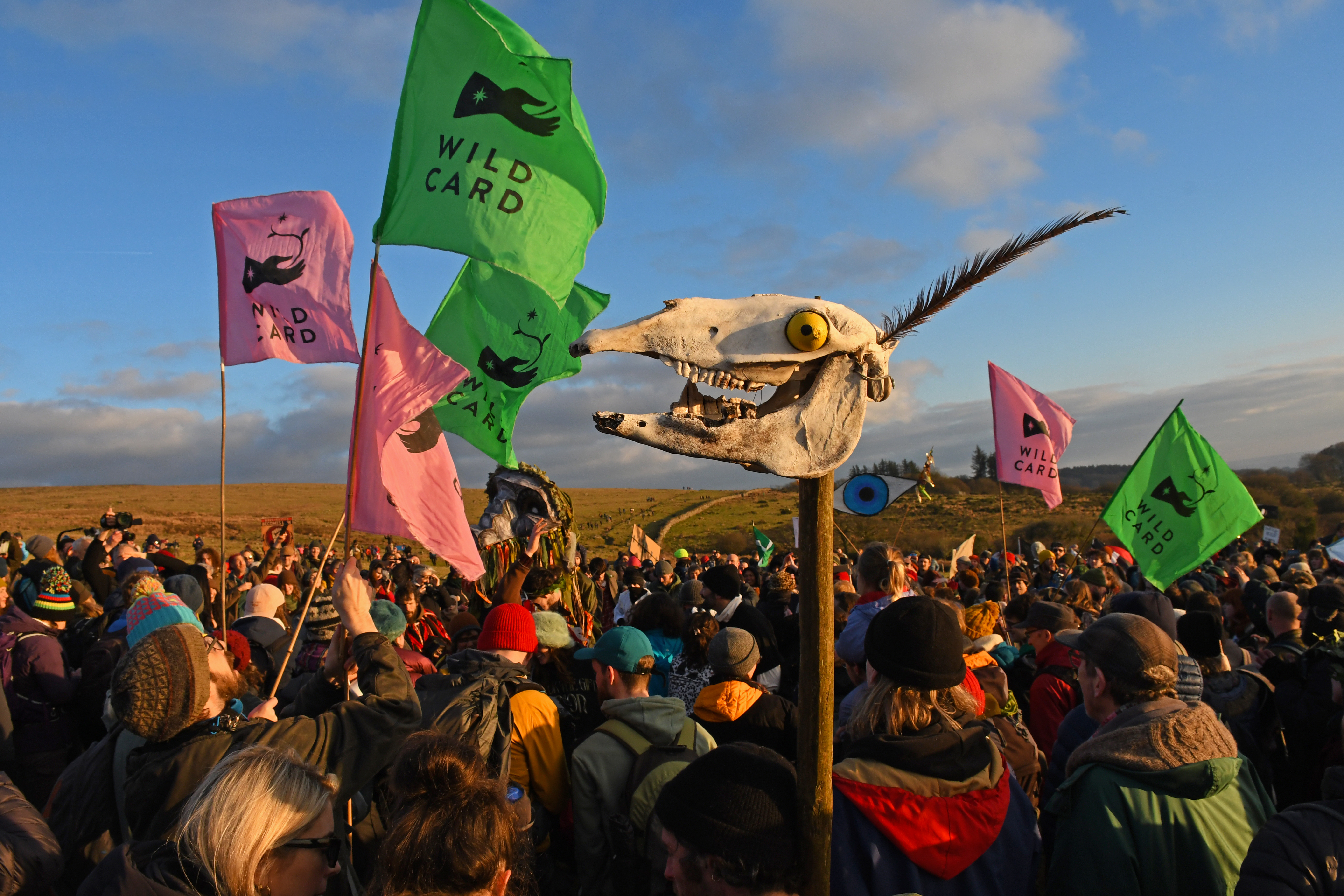
More than 3,000 people from all walks of life came together yesterday to march from the quiet Devon village of Cornwood, up on to an area of Dartmoor owned by a wealthy hedge fund manager who recently took action in the High Court which has led to the loss of the legal right to wild camp on the entirety of the moor.
T3 attended the event to report on the story, which could have wide-ranging consequences for outdoor recreation and pursuits across Britain. Dartmoor was the last place in all of England and Wales where wild camping was still legal - up until last week. However, the case and the outrage it has caused is acting as a catalyst for a bigger conversation about wildlife access and camping rights, which many people argue should be brought into line with the outdoor access code in Scotland, where respectful wild camping is permitted almost everywhere.
Labour have already promised to review access rights should they win power at the next general election - with shadow environment secretary Alex Sobel vowing his party would extend the right to roam, including wild camping - and leading Liberal Democrats including Devon MP Richard Foord also loudly decrying the decision.
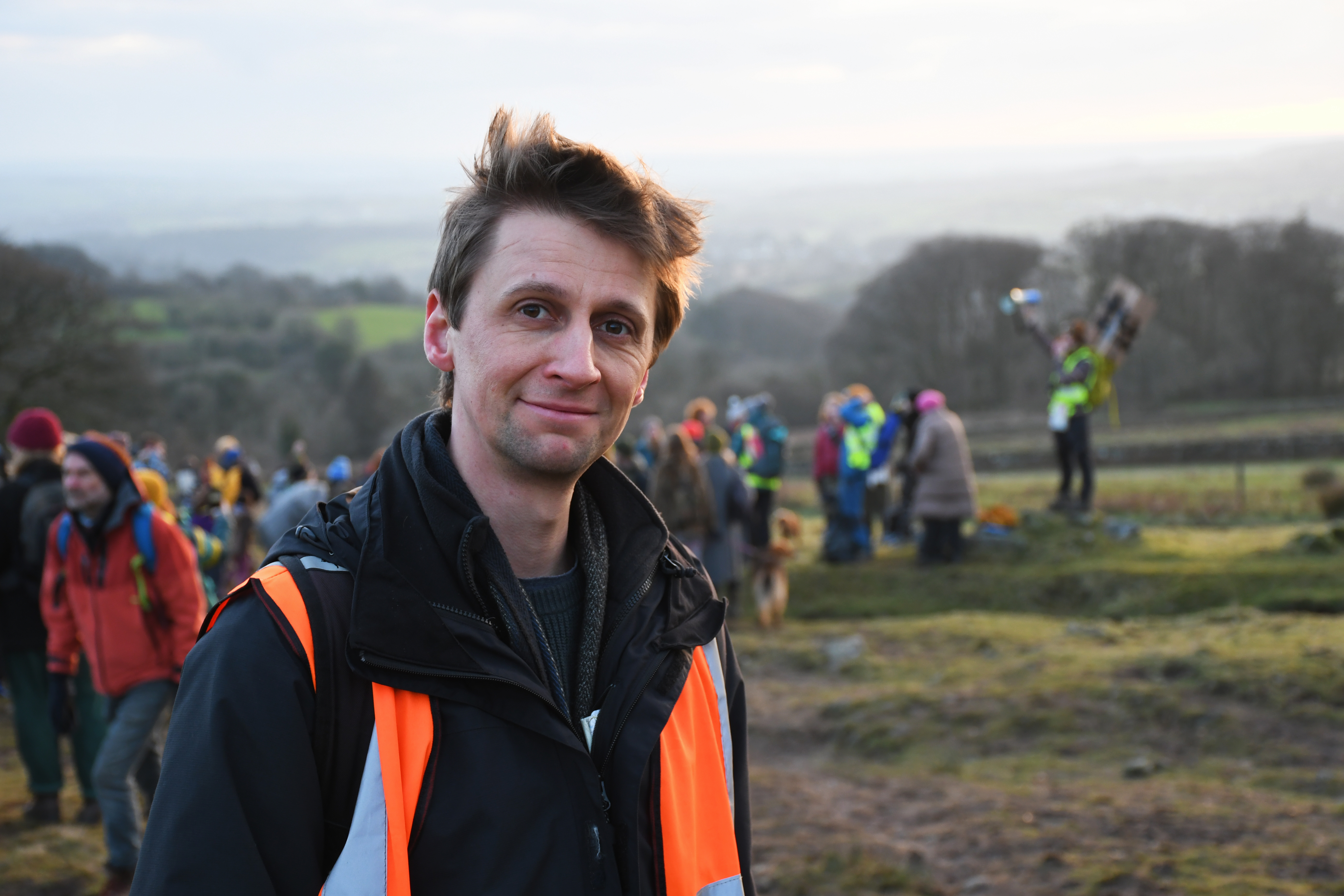
Author, activist and protest organiser Guy Shrubsole
The size of the protest far exceeded the hopes and expectations of the organisers, with 3,000 people signing up to join the march on Eventbrite. Guy Shrubsole, author and creator of Who Owns England, who led the walk and addressed the crowds, told us he was “absolutely delighted with the turn out”, and that it was indicative of the level of dismay and outrage people felt about the loss of such a treasured and fundamental right.
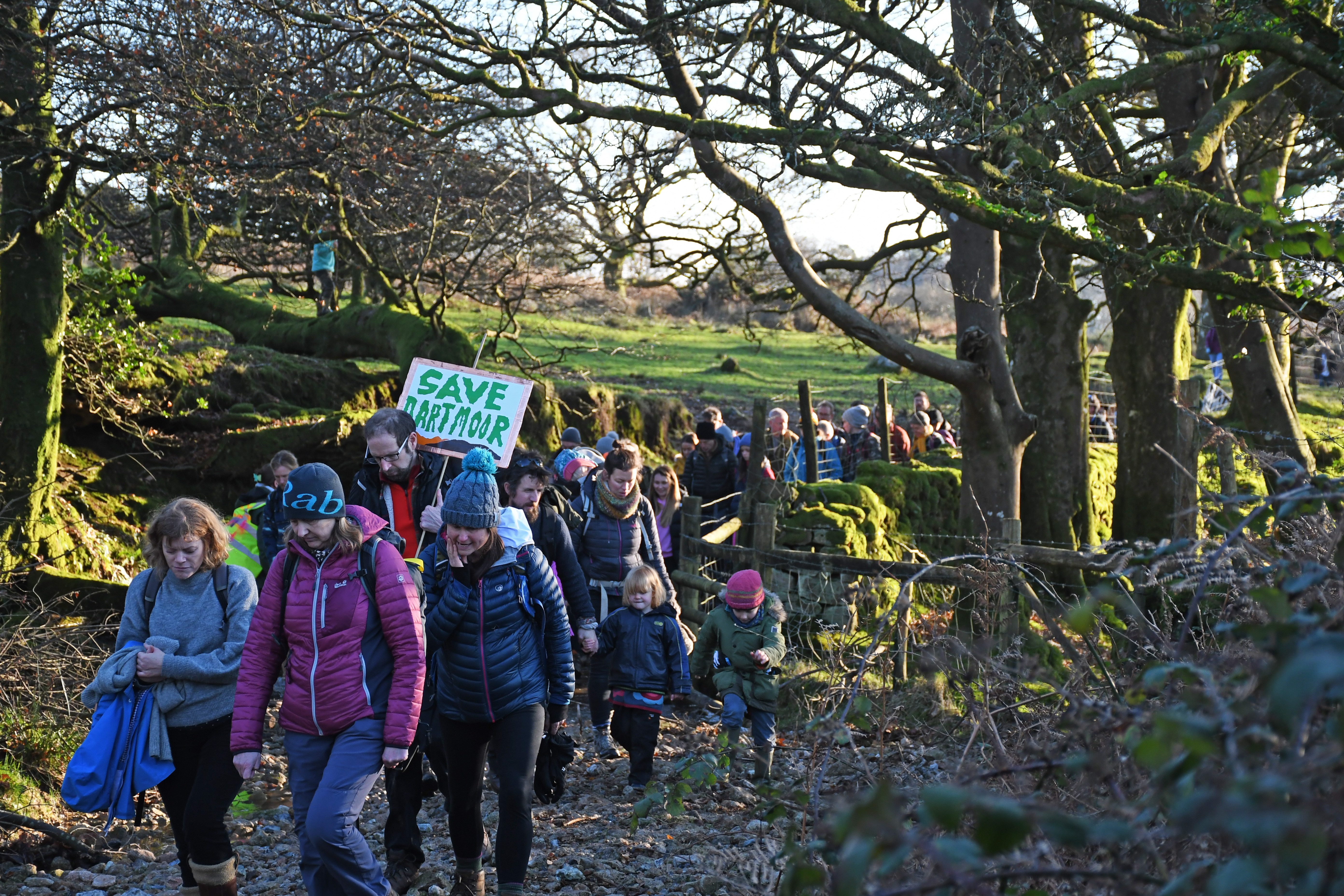
A group of around 500 met in Ivybridge at 11am and then walked over the moor to the village of Cornwood, where thousands more joined them, to assemble for the main walk and to listen to speakers. They were warmly welcomed by the local community, and the Cornwood Inn even had a special beer on tap to mark the event.
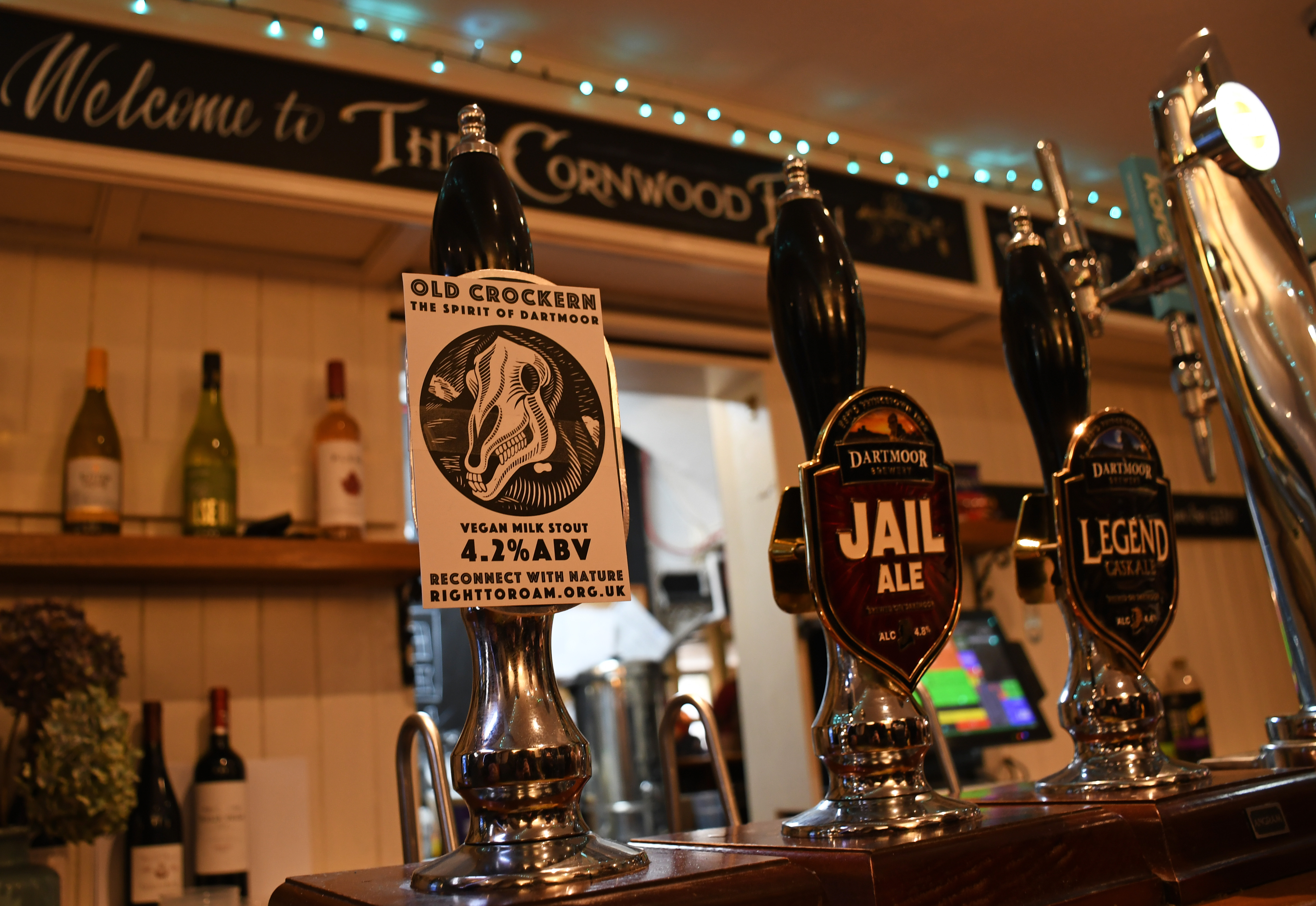
The line of people walking up on to the high moor from the village was enormous, and once they reached the flanks of Stalldown Barrow on Stall Moor, more speakers addressed the crowds. The spirit of Old Crockern - a mythical entity and the ancient protector of Dartmoor, who rides around on a skeleton horse and punishes greedy landowners – was invoked. And, to the enthusiastic roars of the crowd and the delight of the kids present, the spectral figure actually made an appearance just before sunset.
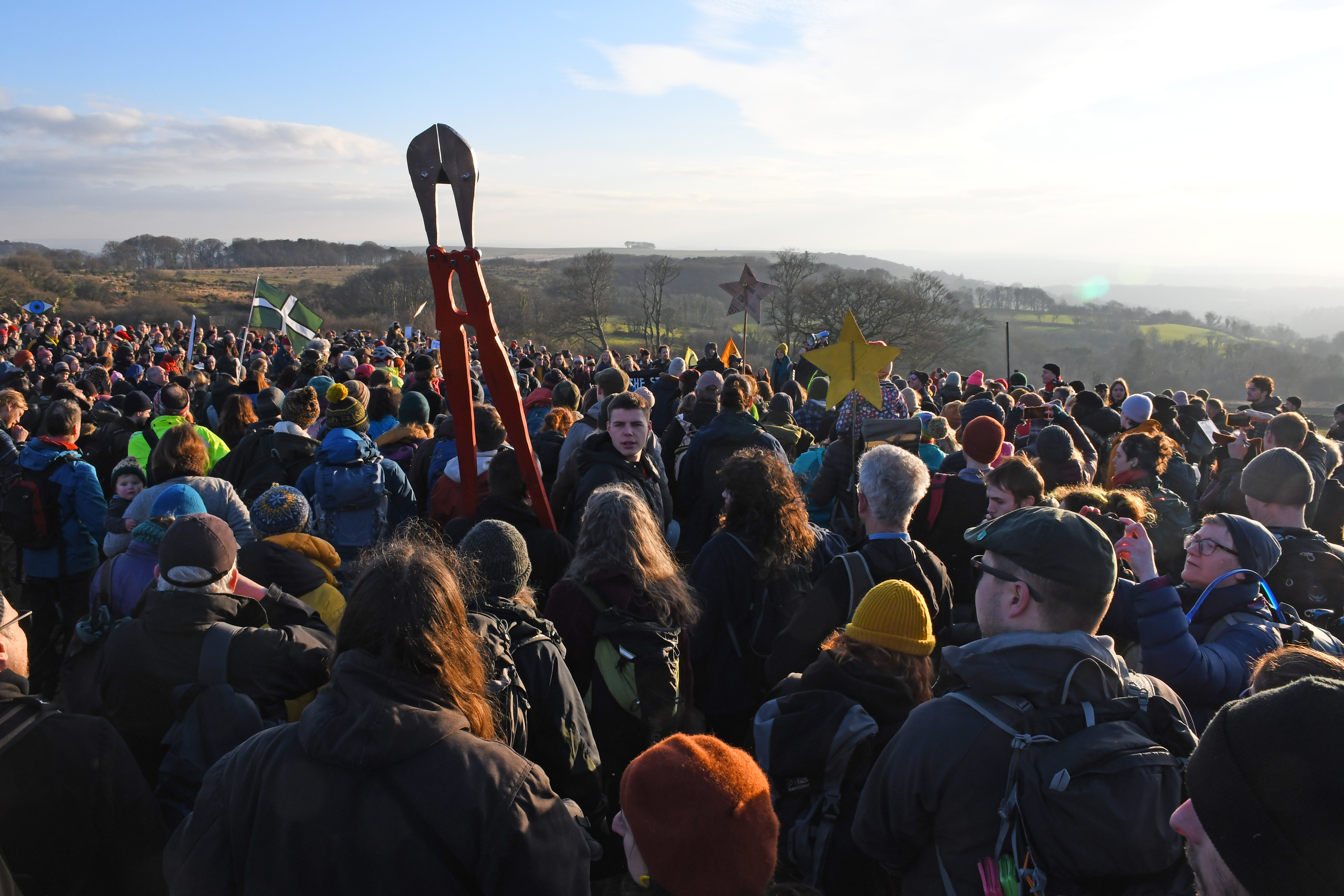
The January day was crisp but clear, with the moor looking resplendent under blue skies, and the protest was peaceful and good-humoured, with an eclectic mix of people taking part, from pensioners to primary school children. However, the shared sense of outrage at the actions of millionaire Alexander Darwall, and the decision of the High Court in his favour last week was palpable.
Get all the latest news, reviews, deals and buying guides on gorgeous tech, home and active products from the T3 experts
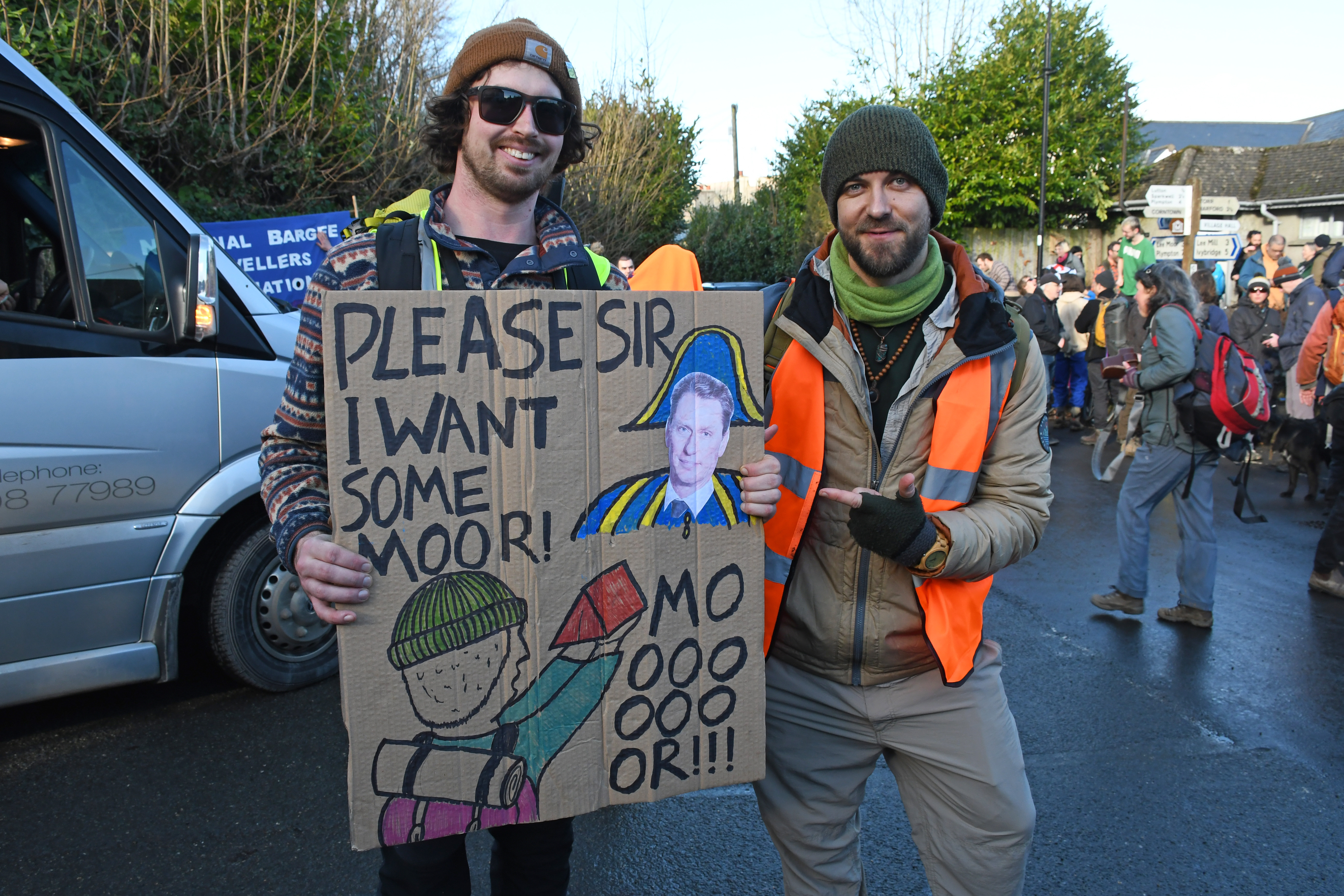
There were lots of signs depicting Darwall as greedy and rapacious, and the consensus among the walkers we spoke to was that his actions were driven by a desire to simply deter people from exploring the Dartmoor Commons - large swathes of land that are privately owned but legally accessible to the public - and to expand the exclusive and lucrative pheasant shoots he runs there.
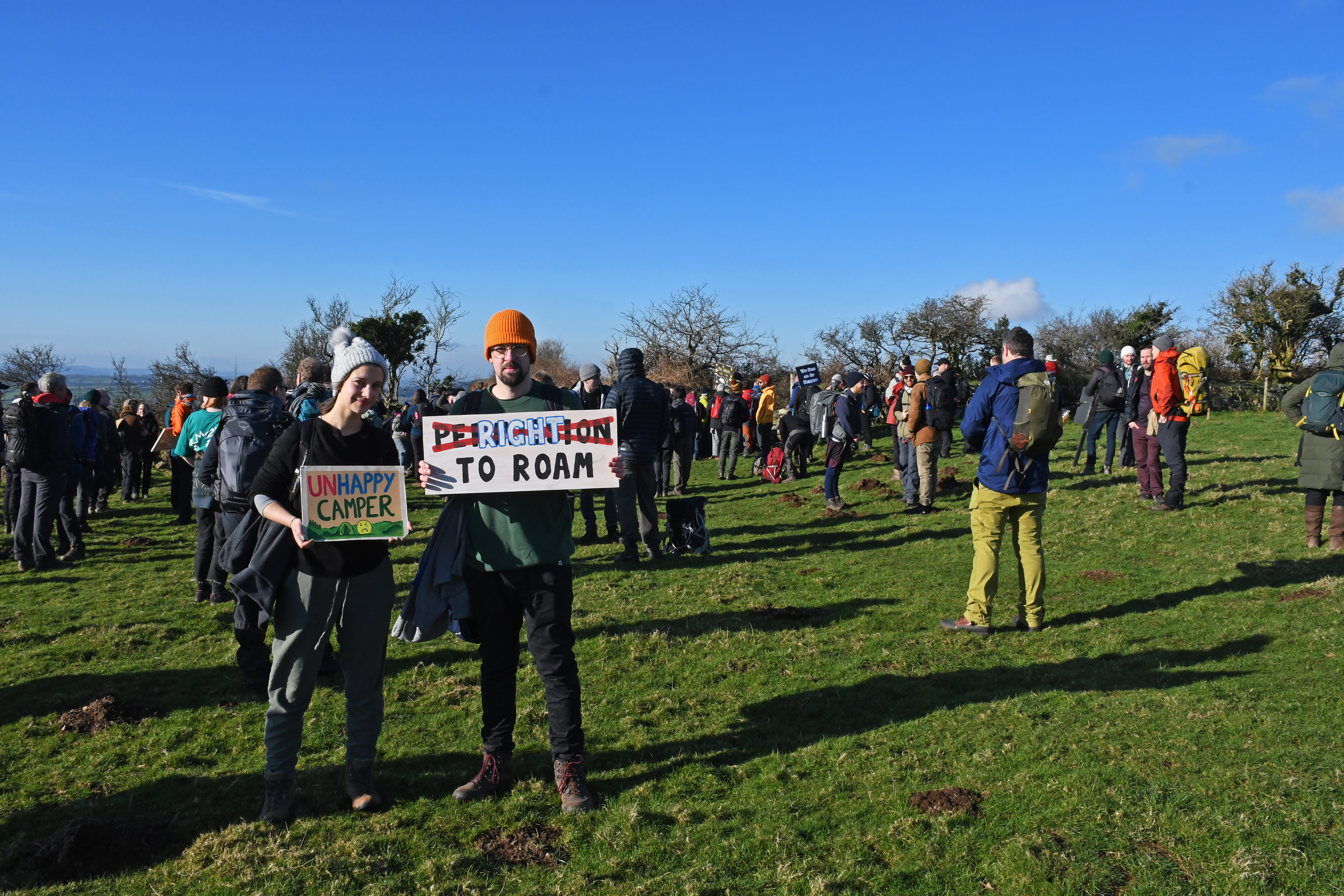
Wild campers Anne-Marie and Ryan had come from Paignton by bus to join the protest
Sam and Juls had travelled down from Bedfordshire to take part in the protest, leaving long before dawn to get to Ivybridge for 11am. “This is where I did all my first wild camps,” Sam told us. “ I came here because it’s a beautiful place to explore, but also because it was legal to camp. I could learn how to wild camp properly here, leaving no trace behind me, but without having to worry about getting moved on by a landowner.”
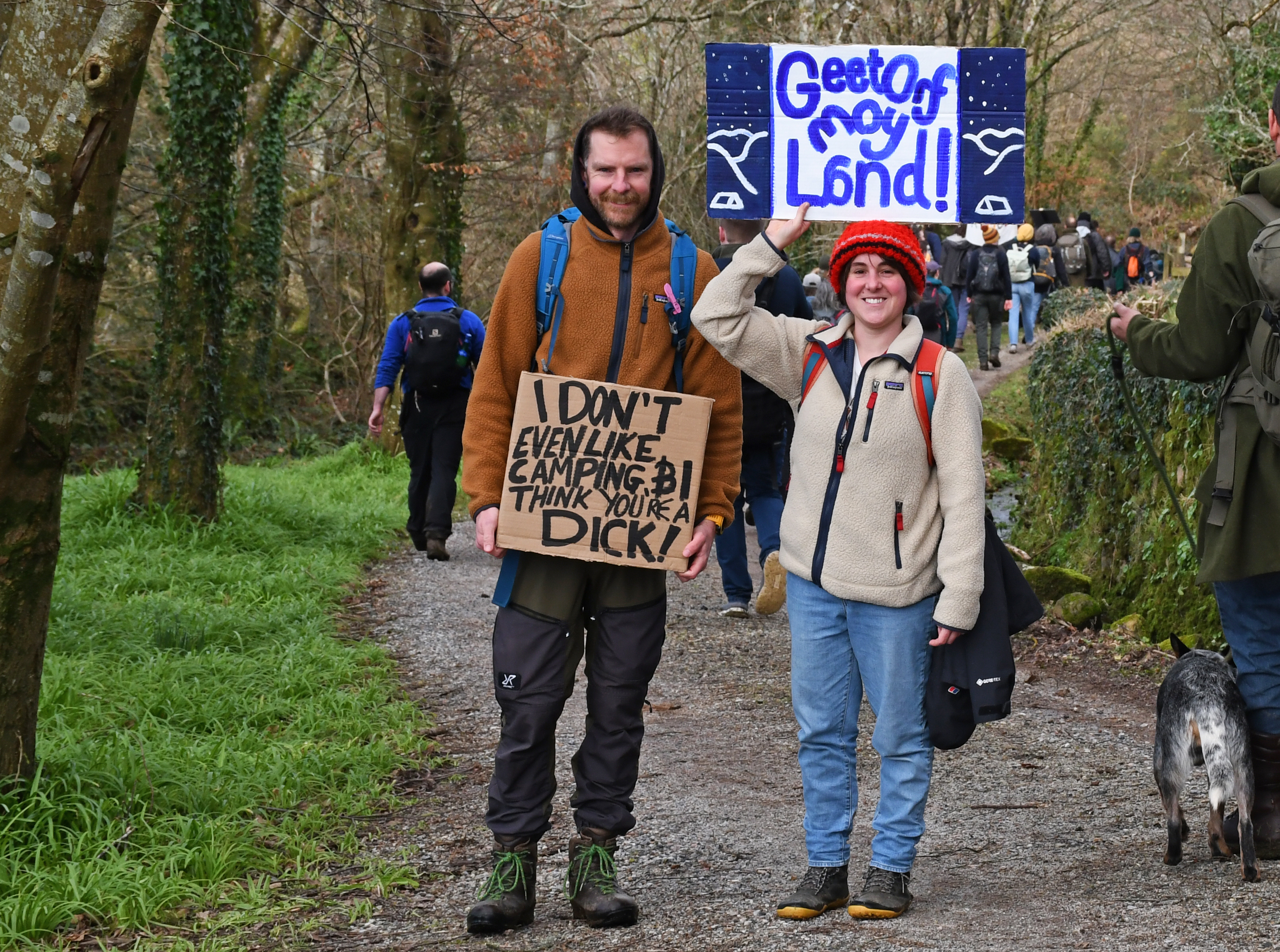
Chris and Rachel Lewis, who had come up from Falmouth in Cornwall, explained that they don’t even like camping, but spend lots of time walking on Dartmoor and are horrified that a rich hedge fund manager could buy a massive area of commons land, knowing full well it was a place where people had long come to respectfully experience nights in the open, and then launch a legal action to remove that right - so they felt compelled to come and support the protest.
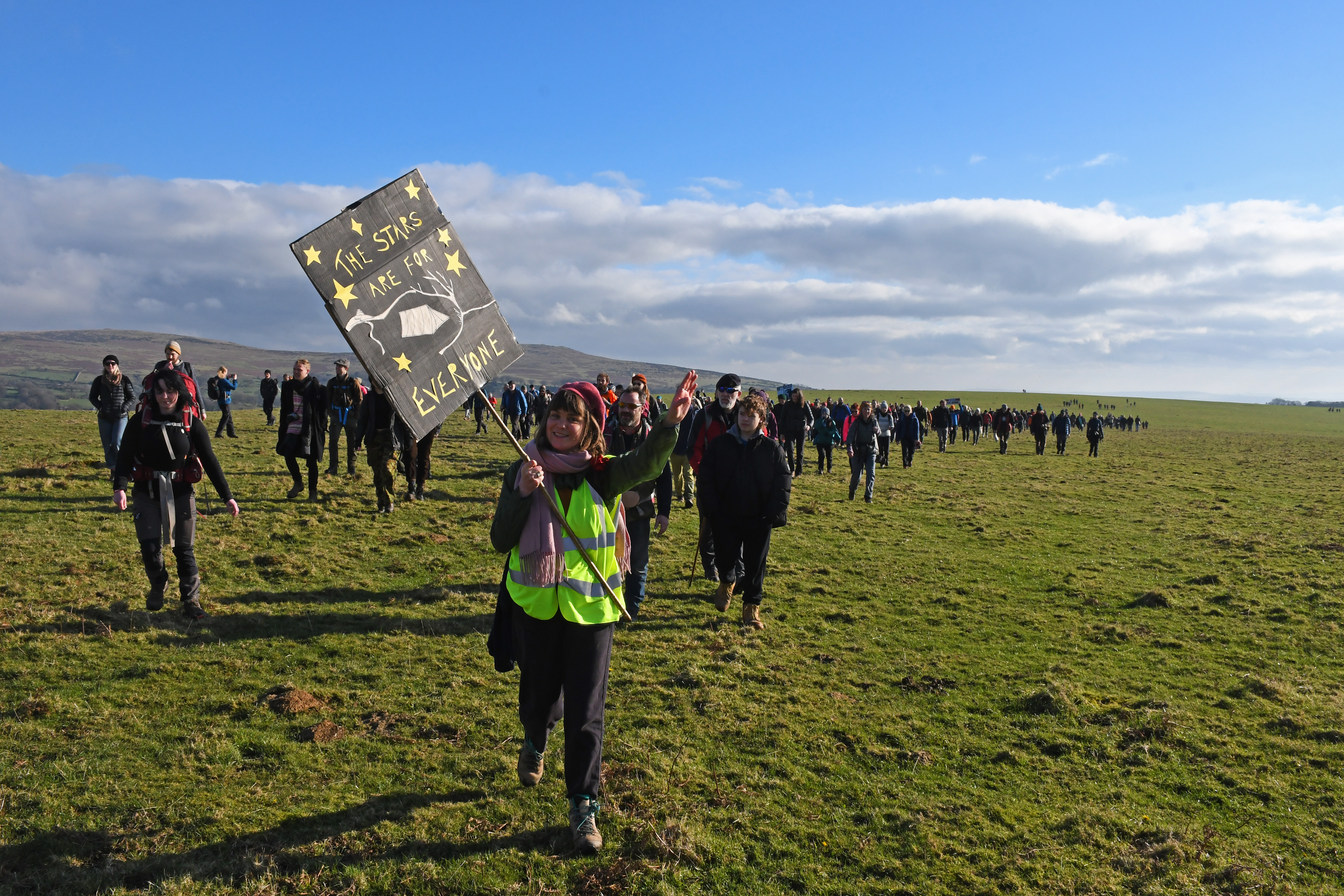
Julia, from The Stars are for Everyone, who has campaigned for improved access to wild areas and the right to roam all across the country, explained that this particular protest was very personal to her. “Dartmoor has helped me through some very tough times,” she said. “We have to fight for the right to camp out here.”
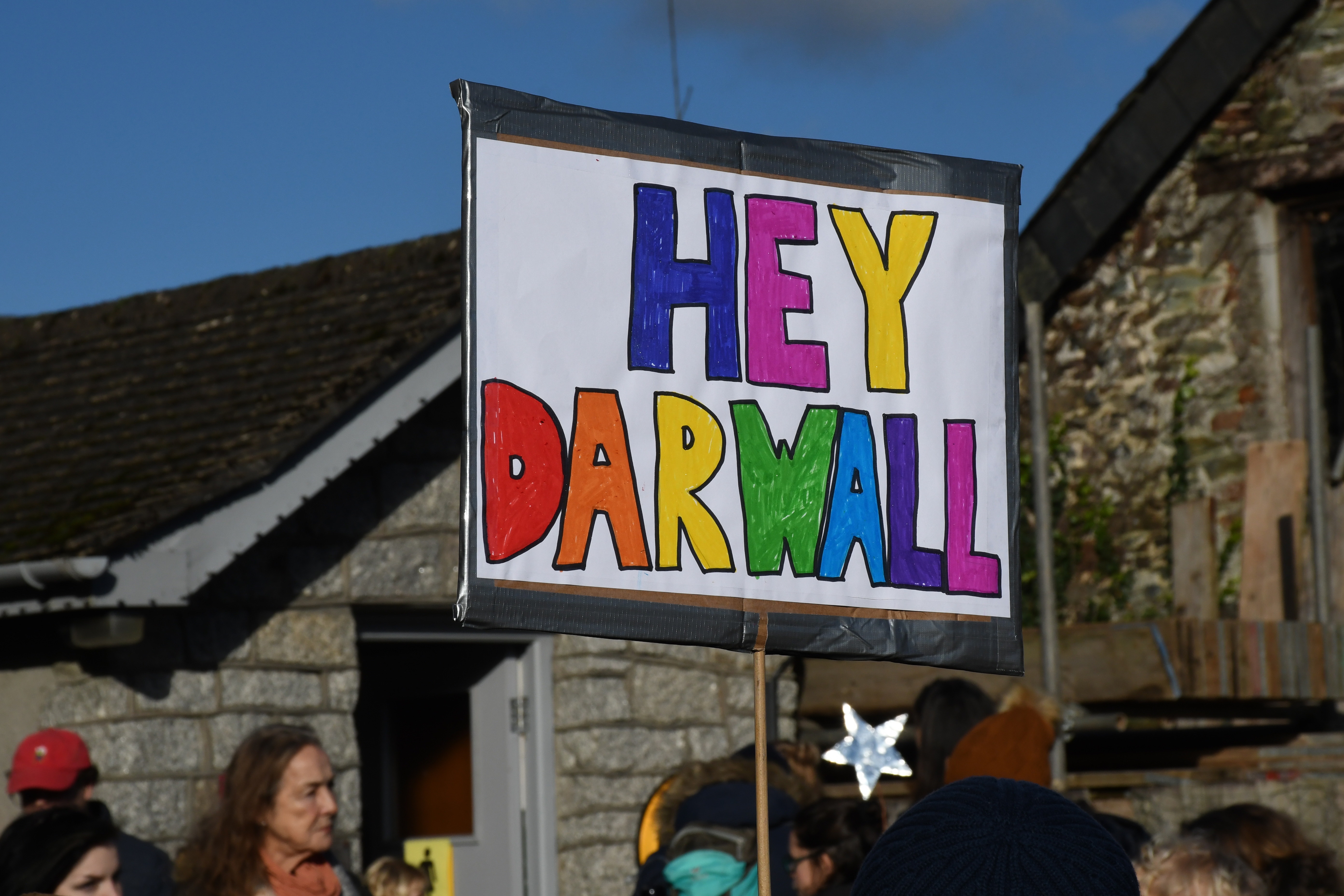
Darwall’s claims that he pushed for a wild camping ban in order to “improve conservation of the Dartmoor commons” were widely rejected by protesters. Wild campers operate a strict self-imposed leave-no-trace policy - often even removing rubbish dropped by other people, such as picnickers, from the areas they explore – whereas pheasant shoots have been widely shown to be disruptive and destructive to the environments where they take place. A report in The Guardian this weekend specifically details how the release of pheasants in woodlands on Darwall’s Dartmoor estate has been putting a rare beetle at risk.
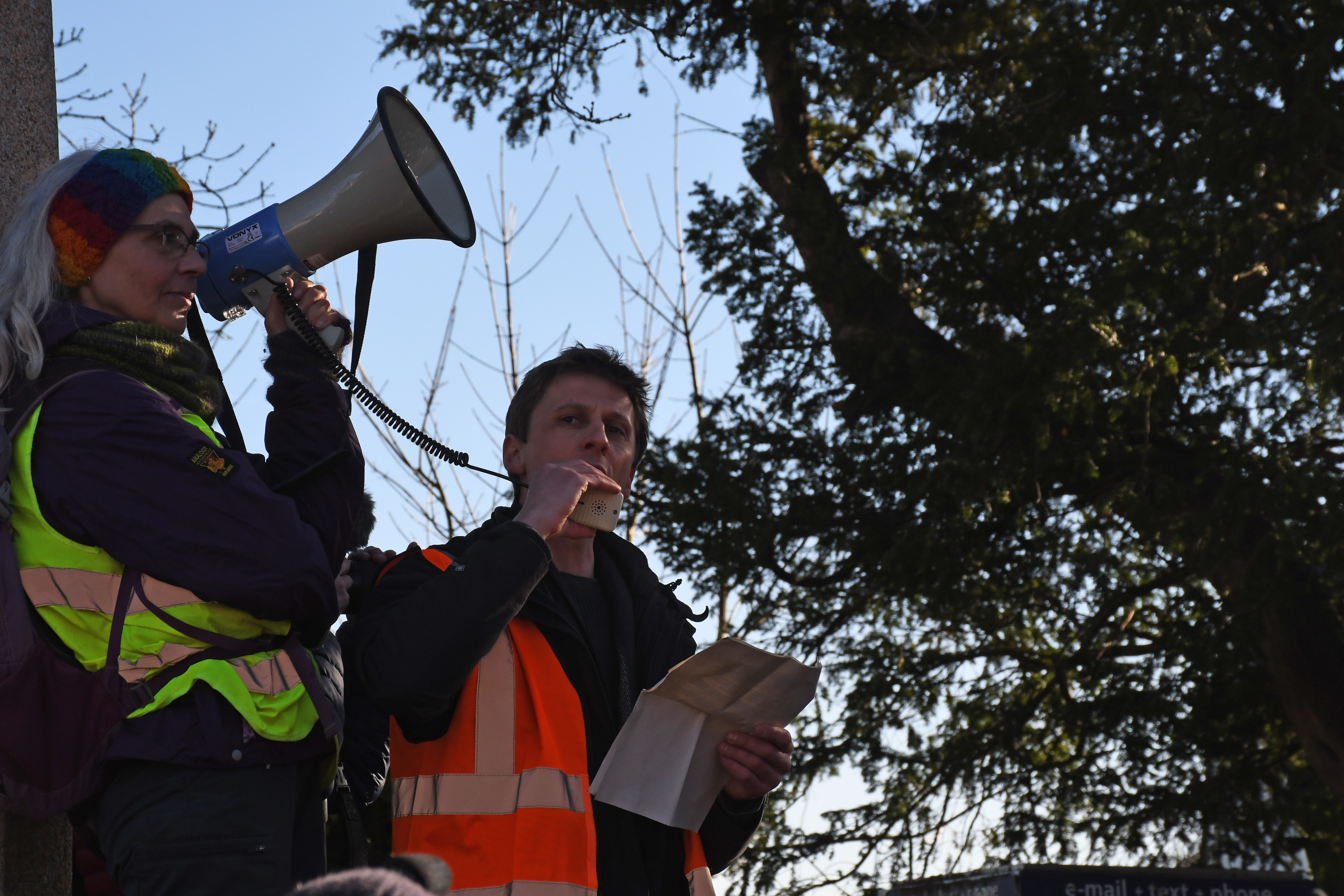
Last week’s court ruling rested on the judge’s decision that camping is not a recreational activity. As yet, it’s unknown whether the Dartmoor National Park Authority (DNPA) - who were defending the right to wild camp on the moor, arguing that it was enshrined in the Dartmoor Commons Act 1985 - will appeal. As they lost the case, the DNPA are likely to be ordered to pay a large percentage of Darwall’s costs, and the government-funded authority are already struggling with reduced budgets.
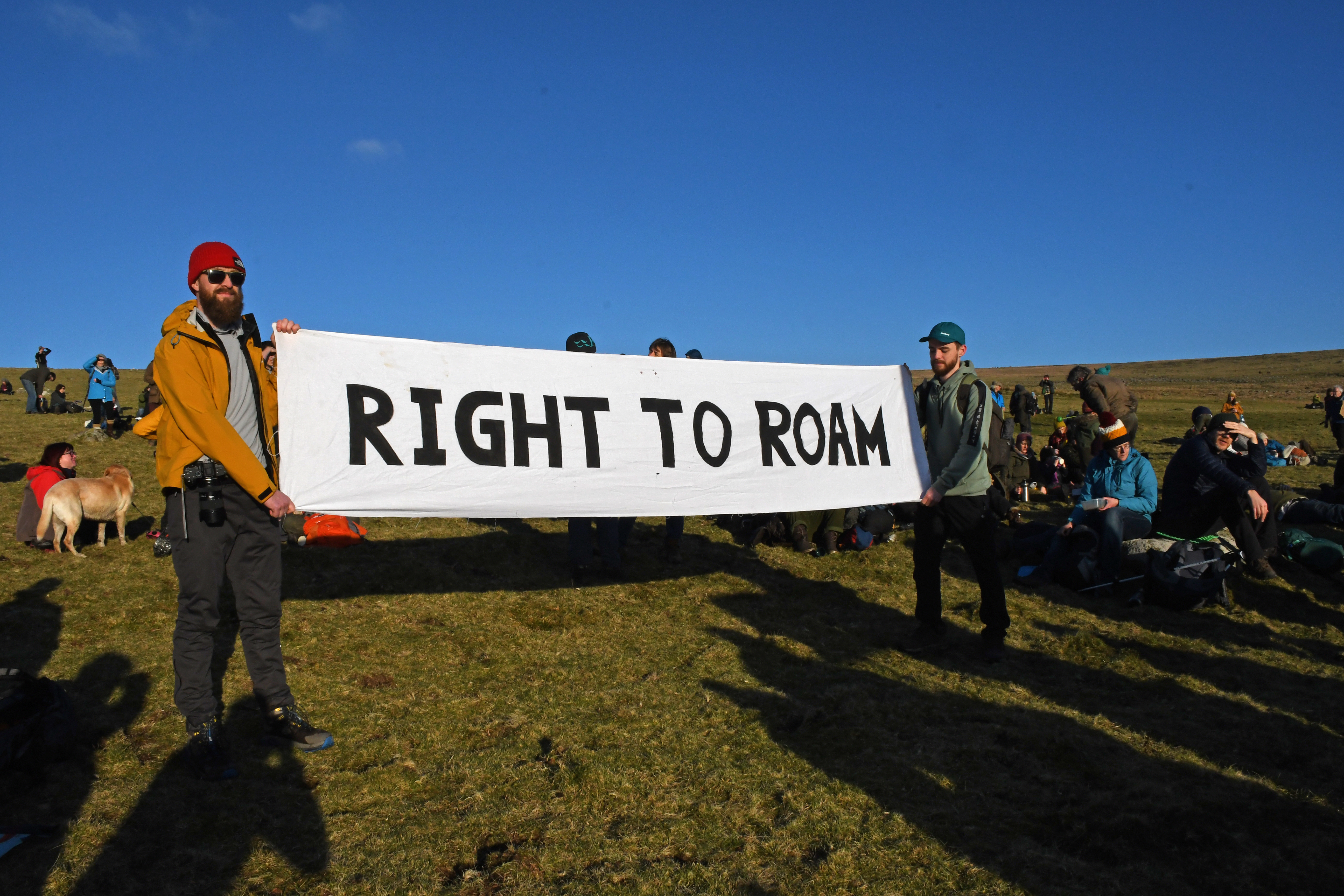
Late last week an agreement was announced between the DNPA and a group of other Dartmoor landowners, which, on the face of it, will allow people to continue to wild camp in certain parts of the moor. However, the arrangement involves the DNPA having to make a payment to the landowners - the exact figure remains unknown - and it has been described by Guy and groups such as Right to Roam as a stitch up.
The area where people can wild camp under the proposed agreement is vastly reduced from what it was prior to the judgement, and the legal right to overnight on the moor has still been removed, with it now coming a permissive right that can be removed by landowners at any stage. People are also horrified at the idea of a tax-payer funded government department having to pay wealthy landowners for something that has been an accepted right for decades.
“Wild campers have had their right to sleep out across Dartmoor summarily snatched away from them,” Guy explains. “And this is completely unacceptable.”
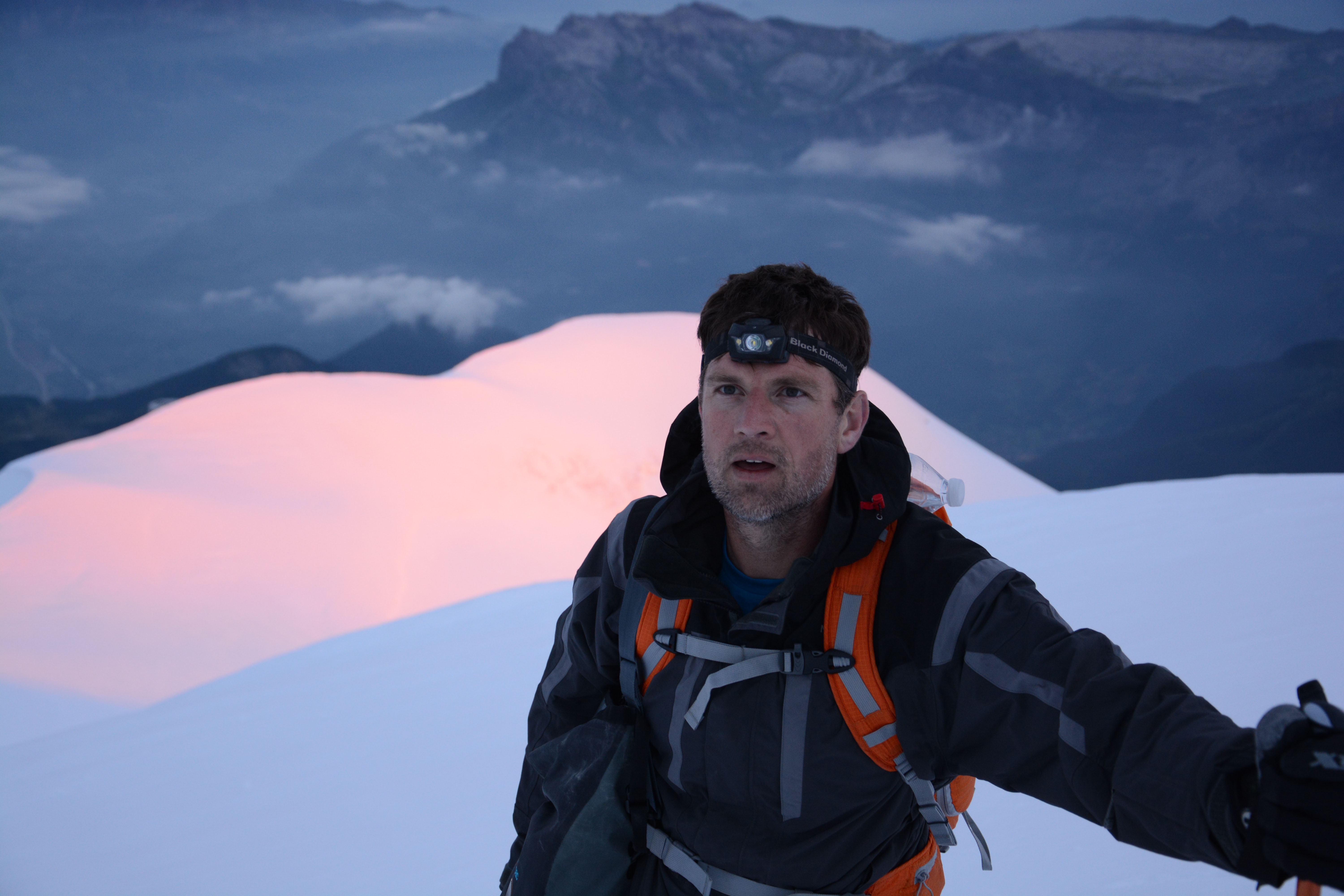
Author of Caving, Canyoning, Coasteering…, a recently released book about all kinds of outdoor adventures around Britain, Pat Kinsella has been writing about outdoor pursuits and adventure sports for two decades. In pursuit of stories he’s canoed Canada’s Yukon River, climbed Mont Blanc and Kilimanjaro, skied and mountain biked across the Norwegian Alps, run ultras across the roof of Mauritius and through the hills of the Himalayas, and set short-lived speed records for trail-running Australia’s highest peaks and New Zealand’s nine Great Walks. A former editor of several Australian magazines he’s a longtime contributor to publications including Sidetracked, Outdoor, National Geographic Traveller, Trail Running, The Great Outdoors, Outdoor Fitness and Adventure Travel, and a regular writer for Lonely Planet (for whom he compiled, edited and co-wrote the Atlas of Adventure, a guide to outdoor pursuits around the globe). He’s authored guides to exploring the coastline and countryside of Devon and Dorset, and recently wrote a book about pub walks. Follow Pat's adventures on Strava and instagram.